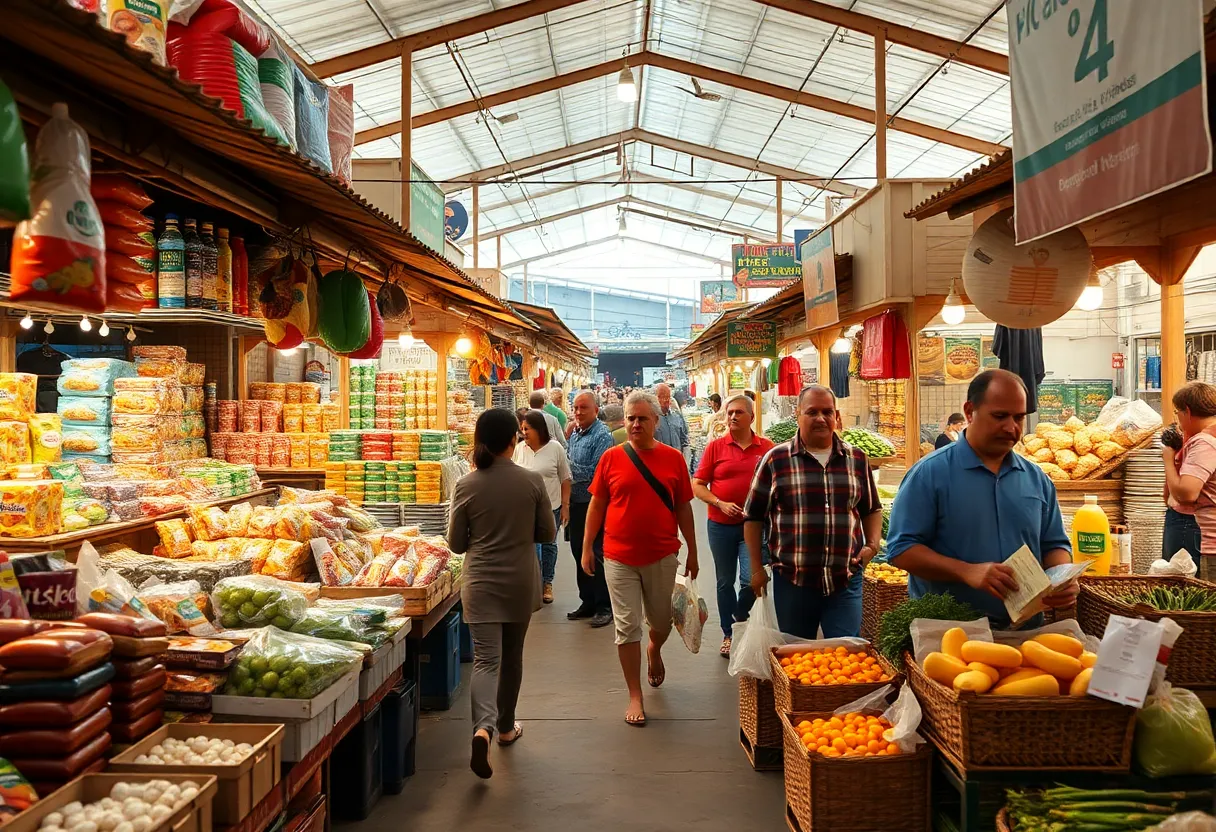

Local Market Facing Tariff Challenges
Local businesses in North Richland Hills are bracing for the impact of new tariffs imposed by President Trump on imports from Mexico and Canada. The 25% tariffs on goods threaten to raise prices for consumers and jeopardize local shops, particularly those reliant on imported products. Entrepreneurs like Yesi Noyola, owner of Kandy Queen Dulceria, express deep concerns about financial repercussions, while local leaders warn of potential broader economic disruptions. With retaliatory measures brewing from neighboring countries, the economic landscape in Texas faces an uncertain future as these changes are set to take effect soon.
In North Richland Hills, the buzz of local businesses has grown heavy with concern as recent tariffs imposed by President Trump on imports from Mexico and Canada take center stage. The news broke that a hefty 25% tariff is set to hit goods coming from these neighboring countries, and local entrepreneurs are feeling the tremors of this economic earthquake.
So, what exactly is a tariff? It’s basically a tax slapped on goods made outside of the United States that are brought into the country. This move aims to protect domestic industries but often leads to higher prices for consumers. As soon as these tariffs kick in, the prices of various goods will undoubtedly climb, and consumers may start noticing smaller shopping bags and bigger receipts.
In retaliation, Mexico is already throwing down the gauntlet with its own tariffs on U.S. goods, while a leader in Canada is encouraging residents to boycott liquor from certain states in the U.S. This kind of back-and-forth could escalate the situation even further.
Widely affected by these tariffs is Yesi Noyola, who owns Kandy Queen Dulceria in North Richland Hills. This beloved shop offers a delightful assortment of traditional Mexican candies and festive piñatas, but here’s the kicker: about 95% of her products are imported directly from Mexico. Noyola is understandably worried about the looming price hikes that could push her customers away and threaten her livelihood. With her store’s finances on the line, the fear of having to close her doors is all too real.
Dr. Ruben Guerra, a leader of the Latin Business Association, has a warning buzzing in his ear—these tariffs could potentially lead to Mexico finding new trading partners, jeopardizing the current trade relationship the U.S. has enjoyed. He points out that similar tariffs imposed on China last year already sent shockwaves through the economy, and this new round could be equally damaging.
As consumers sip their morning coffee and browse their local shops, they might not realize that it is they who will ultimately bear the burden of these price increases resulting from tariffs. Those delicious candies and colorful piñatas that Noyola offers may soon come with a higher price tag.
The political landscape is heating up too. U.S. Congressman Joaquin Castro has raised the alarm, suggesting that this trade war could spell disaster for the Texas economy. He is calling on state Republicans to wake up and pay attention to the potential fallout from these tariffs.
In the midst of this turmoil, Texas Governor Greg Abbott has thrown his hat in the ring. After a tweet from Canadian Prime Minister Justin Trudeau regarding possible retaliatory measures, Abbott emphasized Texas’s economic might but faces criticism for not adequately addressing the negative repercussions that so many are worried about.
As February 3, 2025, looms on the calendar— the day these tariffs officially take effect— local officials and citizens alike are eager to see how this situation unfolds. San Antonio’s mayor, along with State Senators, are keeping a close eye on the developments, knowing that the stakes are higher than ever for communities across Texas.
In the end, the ripple effects of these tariffs will be felt in every small town, grocery store, and bustling market across Texas. With the future uncertain, it remains to be seen how local businesses will react and adapt to this emerging landscape of economic change.
News Summary Texas is gearing up for a stormy week as a classic springtime weather…
News Summary Todd Dale Merriam, owner of Merriam's Midway Shows, faces 26 felony counts of…
News Summary Two drive-by shooting incidents at Joint Base San Antonio-Lackland on Saturday morning alarmed…
News Summary An 18-year-old woman was critically injured in a shooting on April 2, 2025,…
News Summary San Antonio has unveiled Unhireable Coldbrew & Cocktails, a hybrid venue combining a…
News Summary San Antonio is facing potential economic shifts as businesses brace for new tariffs…